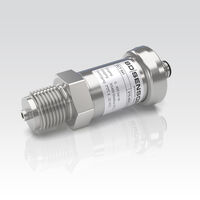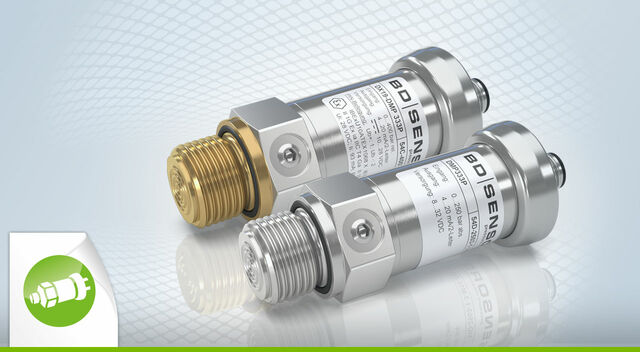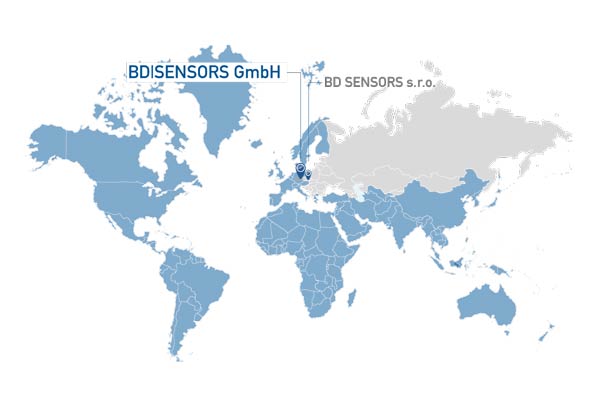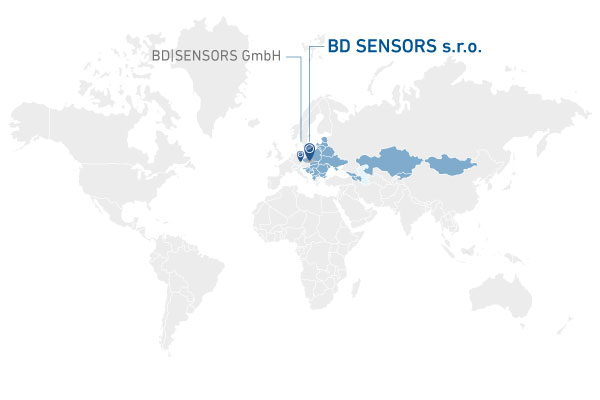Hydrogen is becoming increasingly important as far as climate protection is concerned. After all, hydrogen is three times as rich in energy as the fossil fuels of petrol or diesel, is available in almost unlimited quantities, and is therefore an ideal source for generating power and heat. However, the use of hydrogen requires extreme care during transport and storage. This is because this extremely volatile gas has the property of diffusing into metal surfaces and making them brittle, which has a negative effect on both measuring accuracy and long-term stability.
In order to minimise or prevent such hydrogen brittleness in measuring equipment, it is a case of choosing the right material and the dimensioning of the basic pressure sensor. BD|SENSORS therefore provides the following industrial pressure transmitters, especially for use in hydrogen applications:
- DMP 336 for nominal pressure of 16 to 1,000 bar and
- DMP 333P with a gold-plated membrane for nominal pressures of 60 to 600 bar.
The range of hydrogen pressure transmitters is now sensibly supplemented by the new DCT 541 with an RS 485 digital output signal using the Modbus RTU protocol.
This is a consistent further development of the well-tried DMP 336 pressure transmitter. Just like the predecessor model, the DCT 541 is characterised by having stainless steel media-contacting components, and is highly overload-resistant and insensitive to pressure spikes. In oxygen applications, the special cleaning and manufacturing process ensures that residual particles and residual hydrocarbons are significantly minimised, and that no chemical reaction can occur during the production process.
Thanks to the new Modbus interface, the new pressure transmitter provides digital output signals, which are easier to transmit and process.
| CHARACTERISTICS | INDUSTRIES |
|
MEDIA
|
![[Translate to englisch:] digitaler Drucktransmitter DCT 541 (technische Gase)](/fileadmin/user_upload/Aktuelles/2024/news_2024_DCT541.jpg)





